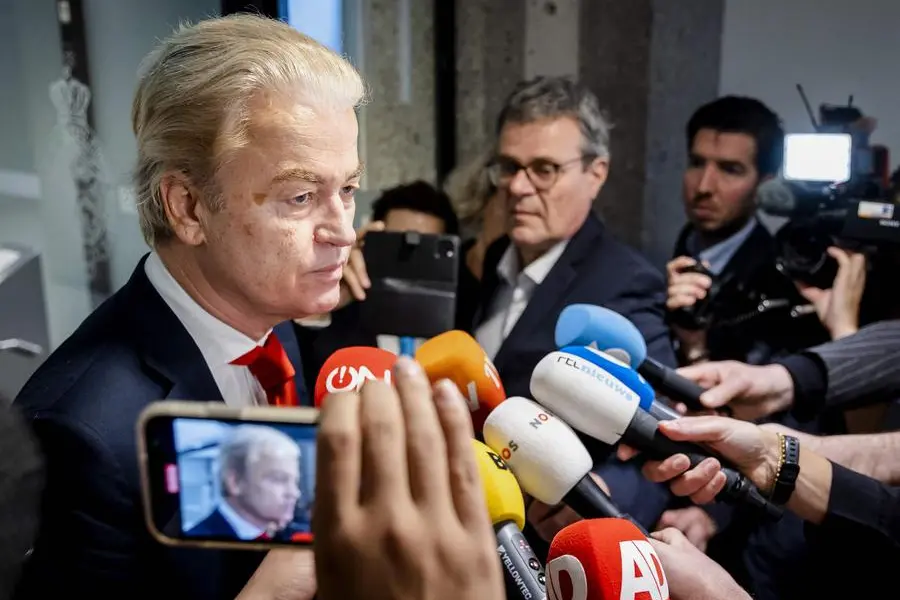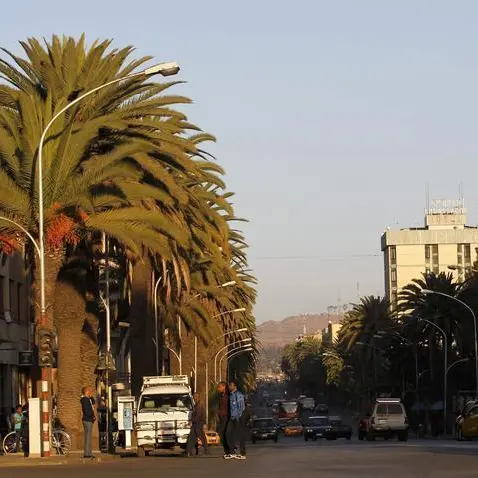PHOTO
Dutch far-right leader Geert Wilders' efforts to form a government after last year's stunning election win are in disarray as one of the main negotiating parties abruptly pulled out.
Europe and the rest of the world are watching closely to see whether Wilders can become prime minister of the key EU and NATO member. So what happened and what happens next?
- Why did talks collapse? -
Wilders had been talking to three other parties: the liberal VVD, farmers party BBB, and the centrist New Social Contract Party (NSC) led by anti-corruption champion Pieter Omtzigt.
Omtzigt withdrew, meaning Wilders has no path to a majority coalition. The official reason was the parlous state of the Dutch public finances, which "shocked" the fiscally prudent Omtzigt.
But the atmosphere in the talks had been poisonous since the start, with the party leaders regularly sniping at each other on social media.
Omtzigt had already raised major concerns about Wilders' manifesto, which includes a ban on mosques and the Koran, plus a recommendation that the Netherlands quit the European Union.
"It has not gone unnoticed by me that the negotiators have been saying more mean things about each other than nice things," said Omtzigt.
The Algemeen Dagblad was uncompromising in its assessment of the past eight weeks of talks.
"Poison, mutual sniping, gossiping. But also differences on the content and all this against a backdrop of a lack of money," wrote the paper.
"The latest coalition talks may go down in history as a slow-motion disaster."
- What happens next? -
The next step comes early next week when Ronald Plasterk, the "informer" charged with overseeing the talks, hands in his progress report to parliament.
Plasterk could recommend trying to form a minority coalition without the NSC, or conclude that there is no way forward and that someone else should have a go.
Omtzigt has hinted at both of these possibilities, saying he might support a minority coalition on a case-by-case basis and also that he would be open to "other groups".
Left-wing parties immediately jumped on the collapse of the talks, saying that Wilders had had his chance and that they should now try to form a coalition.
The main left-wing opposition party, the GroenLinks party of former EU commissioner Frans Timmermans, came second in November's elections and would be next in line to try to form a government.
But these parties together also lack the necessary seats to get to a majority in the 150-seat parliament.
And forming a coalition would be no easier: Timmermans has ruled out working with Wilders and the VVD has ruled out working with the left.
"Problems cannot wait to be solved. The Netherlands deserves leadership and answers," said Timmermans.
The whole process could also start again from scratch, with a new person selected to oversee talks. Only one thing is certain: it will not happen quickly.
- New elections? -
This is the last resort and most analysts see little appetite -- especially as the parties also have a European Parliament election to fight in June.
"Nobody except perhaps the PVV stands to profit from it," said Sarah De Lange, professor of Political Pluralism at the University of Amsterdam.
"Moreover, they are unlikely to produce such a radically different outcome that very different coalitions would be possible."
Omtzigt himself has said that "new elections are certainly not a realistic option."
If the polls are to be believed, Wilders and his PVV Freedom Party have only got stronger since November's result, which sent shockwaves throughout Europe.
One survey puts the PVV at an unprecedented 50 seats, reducing the need for such a broad coalition (75 seats are needed for a majority).





















